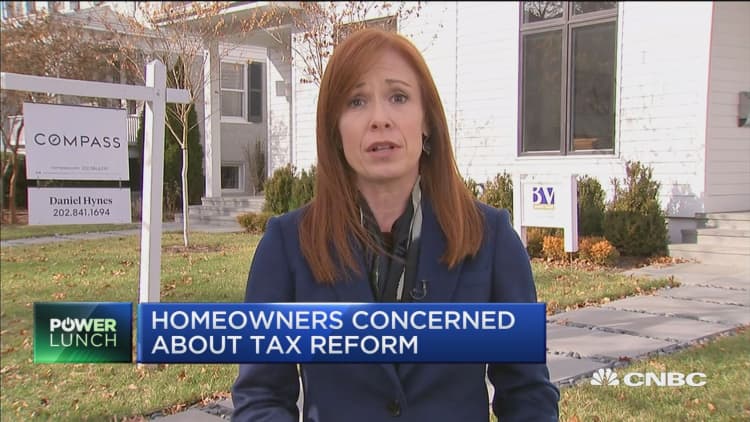
A growing number of homeowners are in the money — big money.
The amount of home equity borrowers now have at their disposal reached an all-time high in the third quarter of last year. The 42 million homeowners with mortgages have a collective $5.5 trillion in "tappable" equity, according to Black Knight Data & Analytics, which studies the mortgage industry.
This is $3 trillion more than they had when the housing market last bottomed in 2012, after the financial crisis. Black Knight defines tappable equity as the amount available for homeowners to borrow before reaching 80 percent of debt to value against their home.
Following the housing crash, millions of borrowers fell underwater on their mortgages, owing more than their homes were worth. Fast-rising home prices over the last two years have brought borrowers above water and beyond. Approximately 80 percent of homeowners now have equity they can use, cash which could fuel the economy. Just 2.7 percent of borrowers, or about 1.36 million, still owe more on their mortgages than their homes are worth.
HELOC's are very popular, but they recently lost a major benefit.
Generally, there are two ways to take cash out of an equity-rich home.
One is to refinance the original mortgage to a larger loan. This could possibly change the interest rate on the loan. The other way is to take out a second loan, either a home equity mortgage, which is a lump sum, or a home equity line of credit (HELOC), which is essentially like a checking account on your home.
HELOCs are very popular, but they recently lost a major benefit. Under the new Republican tax law, the interest paid on these loans is no longer deductible. Borrowers used to be able to deduct interest paid on up to $100,000 in home equity loan debt.
For primary loans, mortgage borrowers can still deduct the interest paid on up to $750,000 worth of mortgage debt, down from $1 million under the previous tax code. That raises the question of whether it is better just to do a cash-out refinance instead.
"Homeowners who will still itemize under the new tax plan will likely find the lack of deductibility of HELOC interest swings the value pendulum towards cash-out refinances as a way to tap their equity," said Ben Graboske, executive vice president of Black Knight.
"This is particularly true for those with low first-lien balances drawing greater amounts of equity. On the other hand, for those with high first-lien balances drawing low volumes of equity, the math still tends to favor HELOCs."

With mortgage rates currently lower than they were a year ago, cash-out refinances have been growing in popularity.
Borrowers doing cash-out refinances withdrew $68,000 in equity on average for a total of $26 billion in the third quarter of last year. Cash-outs now account for 62 percent of all refinances, but it is still far far less than during the housing boom in 2005, when borrowers were essentially using their homes as cash machines.
"The Great Recession wasn't all that long ago, and the memory is likely still in the backs of minds of both lenders and borrowers alike," Graboske said.
Lenders are considerably more risk averse today, so mortgage underwriting is much more strict. Borrowers are exhibiting more restraint as well, in terms of both deciding whether or not to tap into that available equity, and if so, how much, according to Graboske.
There is also the possibility that home values in some regions most affected by the new tax law could fall, causing homeowners to lose some of this new-found equity.
Homeowners can now only deduct $10,000 in property taxes. In high tax states, that could put downward pressure on home values. Homeowners with loans of more than $750,000, who are currently grandfathered into the $1 million mortgage deduction cap, should consult their tax advisors as to whether a cash-out refinance would change their status.The law is currently unclear on that point.


